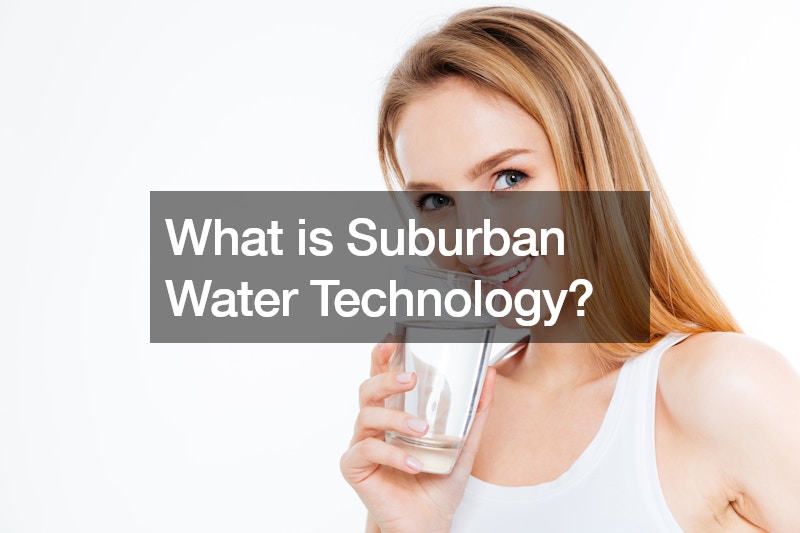
Suburban Water Technology refers to the advanced methods, systems, and devices designed to improve water quality and efficiency in suburban areas. These technologies address various water-related challenges such as purification, softening, conservation, and management, ensuring safe, clean, and sustainable water supplies for residential and commercial use. Here’s an overview of the key aspects and benefits of suburban water technology.
Water Purification Systems
Water purification is a fundamental component of suburban water technology.
These systems remove contaminants, bacteria, viruses, and other harmful substances from water, making it safe for consumption and use. Common purification technologies include:
Reverse Osmosis (RO): RO systems use a semi-permeable membrane to remove impurities from water, including dissolved salts, bacteria, and other contaminants. They are highly effective in providing clean drinking water.
Ultraviolet (UV) Purification: UV systems use ultraviolet light to disinfect water by killing bacteria and viruses. This technology is often used in conjunction with other filtration methods for comprehensive water treatment.
Carbon Filtration: Activated carbon filters remove chlorine, sediment, and volatile organic compounds (VOCs) from water, improving taste and odor. They are commonly used in both point-of-use and whole-house systems.
Water Softening Systems
Hard water, which contains high levels of calcium and magnesium, can cause scale buildup in plumbing and appliances, reducing their efficiency and lifespan. Suburban water softening systems address this issue by replacing hardness minerals with sodium or potassium ions. Types of water softeners include:
Salt-Based Ion Exchange Softeners: These systems use sodium chloride (salt) to exchange hardness ions in the water, effectively softening it. They require regular maintenance and salt replenishment.
Salt-Free Water Softeners: These systems use alternative methods, such as template-assisted crystallization (TAC), to prevent scale buildup without removing hardness minerals. They are low-maintenance and environmentally friendly.
Water Conservation Technologies
Water conservation is crucial for sustainable water management in suburban areas. Advanced technologies help reduce water waste and promote efficient use. These include:
Smart Irrigation Systems: These systems use sensors and weather data to optimize watering schedules, reducing water usage in lawns and gardens.
Low-Flow Fixtures: Installing low-flow faucets, showerheads, and toilets can significantly reduce water consumption without sacrificing performance.
Rainwater Harvesting: Systems that collect and store rainwater for non-potable uses, such as irrigation and flushing toilets, help conserve treated water supplies.
Water Management Solutions
Effective water management ensures reliable and sustainable water supplies. Suburban water technology includes:
Smart Meters: These devices provide real-time data on water usage, helping homeowners monitor consumption and detect leaks promptly.
Leak Detection Systems: Advanced sensors can detect leaks in plumbing systems early, preventing water loss and costly damage.
Water Reclamation: Systems that treat and reuse wastewater for non-potable applications, reducing the demand on freshwater resources.
Benefits of Suburban Water Technology
Improved Water Quality: Advanced purification and softening systems ensure clean, safe, and high-quality water for drinking, cooking, and bathing.
Increased Efficiency: Water conservation technologies and smart management solutions enhance the efficiency of water use, reducing waste and lowering utility bills.
Sustainability: Implementing suburban water technology promotes sustainable water management, conserving valuable resources for future generations.
Enhanced Property Value: Homes equipped with modern water technologies often have higher property values due to their improved functionality and efficiency.




Leave a Reply
You must be logged in to post a comment.